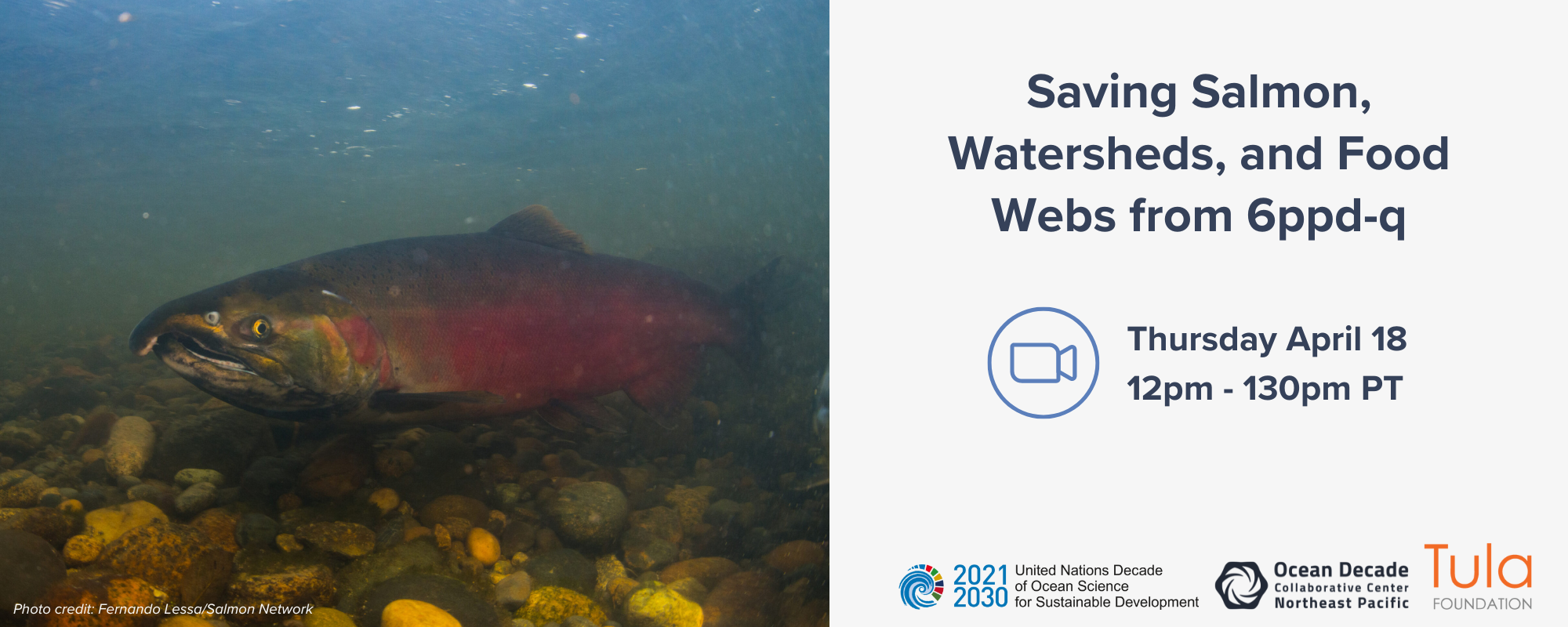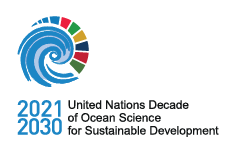Apr 18, 2024 | 12:00PM - 1:30PM | PST | Online
Saving Salmon, Watersheds, and Food Webs from 6ppd-q

6ppd-quinone is an emerging toxic of concern for salmon, watershed and ecosystem health in the NE Pacific. Join the Decade Collaborative Center and our expert speakers to learn more about 6ppd-q, its impacts on salmon, watersheds and food webs, and what action is being undertaken to prevent it from reaching critical salmon habitats and waterways.
Live Recording:
Speakers:
Nat Scholz, NOAA Fisheries:
Nat leads the Ecotoxicology Program at the Northwest Fisheries Science Center in Seattle. His team has been studying the impacts of coastal pollution on Pacific salmonids for the past 25 years, with an emphasis on toxic land-based runoff. This research defined the nature and extent of the coho urban runoff mortality syndrome in the Puget Sound region, demonstrated the effectiveness of initial green infrastructure mitigation methods, and led to the recent discovery of 6PPD-q as the causal agent. Ongoing work is focused on conservation and recovery implications for ESA-listed salmonids throughout the western United States. Relevant publications are accessible via Google Scholar - https://scholar.google.com/citations?user=uY1oifMAAAAJ&hl=en&oi=ao.
Tanya Brown, SFU:
Tanya is an Assistant Professor in the Department of Biological Sciences at Simon Fraser University, British Columbia, Canada. She is also an Adjunct Professor at the University of Windsor, Ontario with the School of Environment. Prior to her current position, she was a Research Scientist at Fisheries and Oceans Canada (DFO) with the Ocean Sciences Division in West Vancouver from 2019-2023. During which time she led DFO's Whale Contaminant Program in support of the Government of Canada's Whales Initiative. She has been studying marine mammals and marine mammal and fish ecotoxicology since 2005. Her past research has focused in large part on understanding the influence of habitat use and feeding ecology that drive contaminant exposure in marine mammals and the impacts on their health.
Jane Pendray, Pacific Salmon Foundation:
Jane is the Program Manager for the Climate Adaptation Program at the Pacific Salmon Foundation. The Pacific Salmon Foundation, founded in 1987, is a non-profit environmental organization dedicated to the conservation and restoration of wild Pacific salmon and their habitats in B.C. and the Yukon. For us, it’s salmon first, salmon always and we never go it alone. We work with First Nations, Government, ENGO partners, industry and all people for salmon who share the desire to save and restore these iconic species. Jane’s work with the Climate Adaptation Program focuses on action-based solutions to climate and other anthropogenic impacts on salmon and their habitats.
